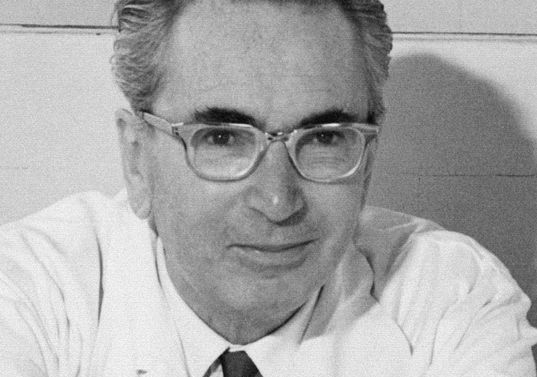Check out Elephant’s Continually-updating Coronavirus Diary. ~ Waylon
~
The COVID-19 pandemic has caused unprecedented disruption to the lives of millions.
The impact of the virus has fundamentally changed our way of life and has caused significant emotional duress to many.
Due to the current health crisis, millions around the world are experiencing devastating economic uncertainty, relationship discord, social isolation, and general psychological adjustment problems. The reach of the virus extends to rich and poor, old and young, impacting people across all races and religions.
Many of us have not had to deal with such drastic changes to our everyday lives and routines. These changes have disrupted our sense of stability and security. In a time of such drastic change, we should consider the powerful message Viktor Frankl gave us decades ago.
In his seminal book, Man’s Search for Meaning, Frankl’s main message is one of hope, optimism through the discovery of meaning in even of the most tragic circumstances. In our present health crisis that alters financial security, creates social isolation, and challenges our resolve, we should turn to Frankl. Frankl demonstrated and lived the quintessential example of transcendence from immense personal suffering during the Holocaust of World War II, to his discovery of meaning and purpose in life.
Man’s Search for Meaning was written in nine successive days in 1945 shortly after his release from the concentration camp. Frankl was an Austrian psychiatrist, a professor of both neurology and psychiatry and a survivor of the Theresienstadt, Auschwitz, Kraufering, and Turkheim concentration camps. He speaks directly to us sharing in simple language the depths of personal suffering and the heights of human aspiration and achievement.
“Suddenly a cry broke from the ranks of the anxious [train] passengers, ‘There is a sign, Auschwitz!’ Everyone’s heart missed a beat at that moment. Auschwitz – the very name stood for all that was horrible: gas chambers, crematoriums, massacres. Slowly, almost hesitatingly, the train moved on as if it wanted to spare its passengers the dreadful realization as long as possible: Auschwitz!” (page 8)
The reality of life in the camp quickly revealed itself. As the immense personal sufferings he endured became worse, he realized that he had a choice for inner transcendence, guided by spiritual freedom. Frankl realized that no matter what happened, he had a choice to retain his personal freedom on how to respond to his suffering.
“We who lived in concentration camps can remember the men who walked through the huts comforting others, giving away their last piece of bread. They may have been few in number, but they offer sufficient proof that everything can be taken from a man but one thing: the last of the human freedoms – to choose one’s attitude in any given set of circumstances, to choose one’s own way…that the sort of person the prisoner became was the result of an inner decision, and not the result of camp influences alone…It is this spiritual freedom – which cannot be taken away – that makes life meaningful and purposeful.” (page 62-63)
Even after his survival in the camps, Frankl’s suffering continued. He survived the concentration camps but returned to a world where he was utterly alone.
“On the first day of his return to Vienna in August 1945, Frankl learned that his pregnant wife, Tilly, had died of sickness or starvation in the Bergen-Belsen concentration camp. Sadly, his parents and brother had all died in the camps.” (p.153)
As a result of his incompressible suffering, Frankl discovered that man’s ultimate purpose is to live for meaning. Each of us has the capacity to choose our attitude and actions based on this purpose. Frankl chose to respond to fear with fortitude, to tragedy with hope, and to atrocities with love.
Viktor Frankl who survived years of incomprehensible suffering during the Holocaust was greatly influenced by existential philosophy, particularly the writings of Friedrich Nietzsche. Frankl often used Nietzsche’s adage that “he who has a why to live for can bear almost any how” to illustrate the simple tenet that if one finds meaning and purpose in life then he or she can adapt to any of life’s burdens or challenges.
Frankl’s concentration camp experiences shaped both his therapeutic approach and philosophical outlook, as reflected in his seminal publications. After the war, Frankl lectured, wrote books, and practiced as a psychiatrist. He was the creator of the psychoanalytic practice, Logotherapy.
From the perspective of Logotherapy, the discovery of meaning and purpose in life is the most important aspect of spiritual development and therefore, the ultimate objective of psychological growth. Logotherapy enables the creation and discovery of a sense of meaning and purpose in life. Those who have found a deep meaning and reason for living are less likely to succumb to life’s challenges and more likely to live a healthy and well-adaptive life.
During our present crisis, there is a recognition that we all have in our capacity to transcend our personal suffering through the development of purpose and meaning. We can choose to respond to fear with fortitude, to tragedy with hope, and to suffering with love. Viktor Frankl is most important in our present time of struggle, as illustrated in the example he set that we all have the capacity to transcend suffering with the development of meaning and purpose.
~
References
Frankl V. E. (1984). Man’s Search for Meaning. New York, NY: Washington Square Press.
~
Relephant:
 Share on bsky
Share on bsky






Read 11 comments and reply